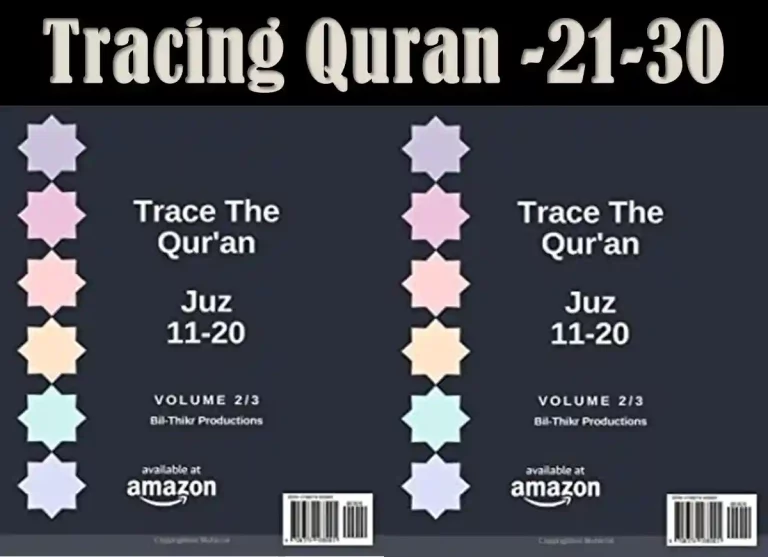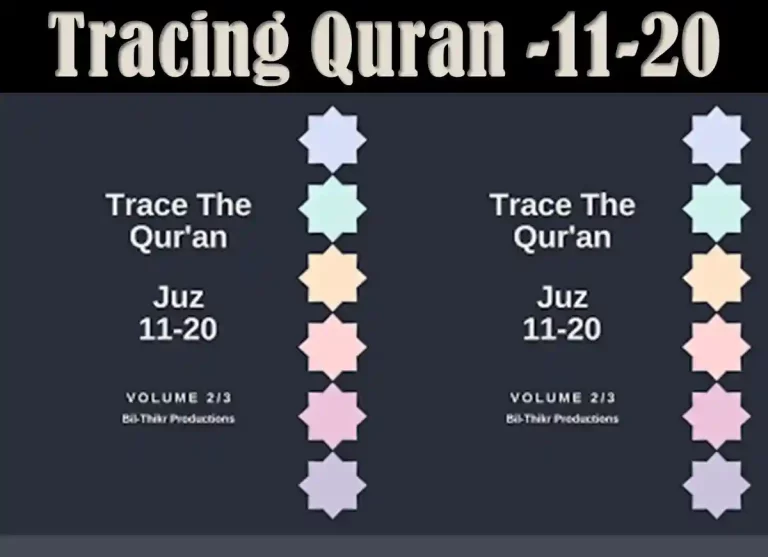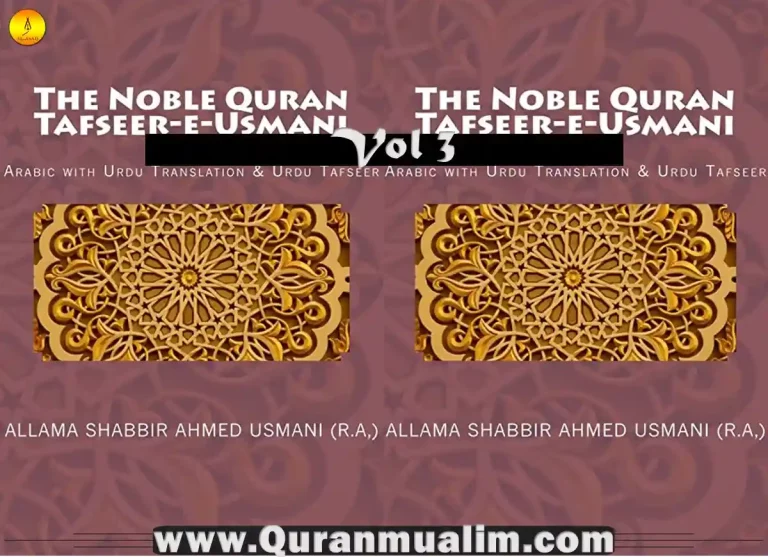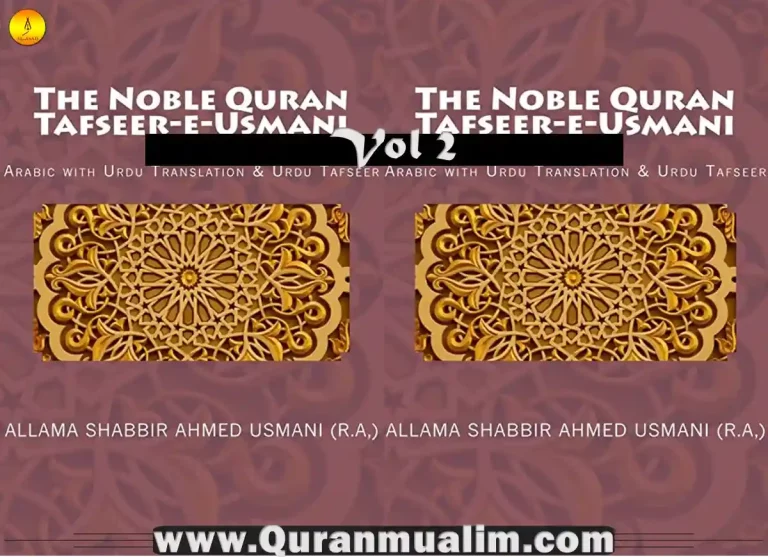In The Shade of The Qur’an Vol. 3 (Al-Nisa), –Juz 4: “Protecting The Community.” Surah al ‘Imran focuses heavily on the political and social dynamics between Muslims and the People of the Book. Surah al ‘Nisa’ focuses more on the dynamics between families. It reminds us that we all are essentially related to Allah.
Family relationships are a part of our human identity, and should be treated as sacred bonds. Each member of the familial unit has sacred rights and must be respected. Allah gives women and children the right to equal rights. The greatest responsibility for protecting their rights lies with men, who were created to exercise a natural physical dominance over women.
First, Allah mentions the rights of children. This includes those who Allah has removed from their family, such as the orphan. It is important to take care of them and how they are managed, especially when it comes to their wealth. The capital of an orphan’s estate is almost entirely acquired by inheritance.
Suggested Read: Quran French, The Quran: English Translation, Textual Criticism and Qur’an Manuscripts, The Clear Quran, El Coran and The Essential Book of Quranic Words
In The Shade of The Qur’an Vol. 3 (Al-Nisa),– It is important that the inheritance issue is addressed before others can interpret it to their advantage. Allah explains the details of who is entitled to what share of the estate of each deceased member of his immediate family. This highlights the fact that there are boundaries that should not be crossed.
The community is then instructed by Allah on how to protect their women’s reputations from false accusations and slander. Simultaneously He describes the nature and process of repentance for sexual deviances. He also demonstrates that forgiveness is possible as long as an individual is not on the brink of death.
Allah then dismantles the oppressive practices of Arabs who used to entrust women without their consent, abuse them in marriages or take over their wealth. Allah also bans incestuous relationships by defining every type of relationship falling under this category.

Juz 5: “Social Reform”
AYAT 2432
In The Shade of The Qur’an Vol. 3 (Al-Nisa), -Continued from Juz 4, and the instructions Allah gave to protect the sanctity for women, Allah gives women the right to have dowries and to marry in a dignified, public manner that preserves their good name. Allah reminds us that repentance can be done if someone violates the sanctity Allah has given them.
“Those who believe and do good works will be admitted into Gardens with flowing streams. They will stay there forever. They will find their perfect spouses there and we’ll let them in cool, refreshing shade.” (4.57).
Allah stresses that the protection of dowries is part of the wider category of financial rights and it is forbidden to take anyone’s wealth. He also discourages us not to envy the various favours He has given women and men, and reminds us that everyone gets their fair share of what is best for them. This concept will help us to understand how we can protect each other from cheating and violating our rights in order to “get ahead” in this world. The rulings in this section also apply to family relations, where inheritance can be illegally taken or family members misuse their blood relations to unfairly take advantage of one another.
AYAT 33 -57
In The Shade of The Qur’an Vol. 3 (Al-Nisa) – This section focuses Allah’s attention on protecting the sanctity and integrity of His Word. Human rights cannot be upheld if that is not done.
This section starts with guidelines on how to preserve the sanctity and purity of your mind by abstaining from alcohol, especially during prayer, as well as the sacredness of prayer spaces (the Masjids). The Book of Allah will not be altered as long as the mind and worship places are clean.
As if we needed another reminder of why this is so important, Allah reminds us to follow the lead of the majority of the People of the Book. They sold their religion and altered their scripture to discredit the faith. They will be cursed if such people don’t repent. Allah clearly states that polytheism will not be forgiven if someone dies upon it.
These unforgiveable acts are the result of lies they told about Allah, even though they once had guidance. They continue to claim righteousness, but harbor hatred and jealousy toward those who believe the truth. If they don’t repent, they will be punished with a particular punishment. The greatest reward will be given to believers.
AYAT 58–70
In The Shade of The Qur’an Vol. 3 (Al-Nisa) – Allah teaches us that it is not enough to preserve the integrity of the Qur’an. Leaders must instead strive to follow the guidelines of the Qur’an and give rights where they are due.
Again, He uses the People of the Book to illustrate what it is like for the governance of Allah to be abandoned in favor of the governance of false authorities. It’s amazing how hypocrites will take advantage of the chance to support the former at the expense of believers. We are reminded by Allah that believing in Allah is dependent upon our ability to govern our affairs according the judgment of Prophet Muhammad Slh lyh Wslm.
AYAT 71 -86
In The Shade of The Qur’an Vol. 3 (Al-Nisa) -Men must be prepared to risk their lives in order to ensure that the rights of vulnerable people are protected and upheld. Warfare was therefore legislated and made a regulation to protect the well-being of the believers. These are the main topics of this section.
Fight for falsehood will always win over fighting for the protection of the religion of Allah, the rights to worship Him alone and to spread Divine guidance. People who fear death and defeat at the hands of falsehood-fighters are addressed by Allah. Their cowardice is counterproductive as death is certain and they will suffer no harm if they disobey. Serving Allah is the only way to success if we want to be successful. He is the only source for good.
Importantly, obedience to the Messenger is equal to obedience to Allah. Divine success is also found in following the Messenger and supporting those who are rightfully leading him. This is an essential part of salvation for believers. Allah reminds the Prophet that he should encourage his followers to fight alongside him against their enemies.
AYAT 87 -94
In The Shade of The Qur’an Vol. 3 (Al-Nisa) -Allah now regulates who can fight against, after war has been legislated. Beginning with turncoats, clear enemies, he highlights the distinction between those who openly work against believers and those who seek peace and establish agreements. Both can be defeated, but the latter must be dealt with in order to maintain peace.
They must not be opposed by those who believe. This section details the types of compensation that must occur if someone is killed accidentally. It depends on the circumstances of both the victim and the perpetrator. Intentional murder of believers will have the worst consequences for Allah, as these people are closest to Him.
AYAT 95 -104
In The Shade of The Qur’an Vol. 3 (Al-Nisa) -This section focuses on those who migrate and fight for Allah’s sake. Allah first distinguishes those who fight for His sake from those who remain behind. Then, He further distinguishes those who stay behind for legitimate purposes and those who don’t have any.
Allah also gives assurance to those who cannot fight or migrate for religious freedom and miss out on the rewards of fighting for His cause. Allah shows His mercy by allowing them the ability to reduce their prayers to make it easier to travel, as He also allows them to modify their prayer for soldiers on the battlefield.
AYAT 105 -126
In The Shade of The Qur’an Vol. 3 (Al-Nisa) -Allah has now established the rights and protections of the people. He then shifts the subject from the ones who need to be fought against to those present in the ranks. Hypocrites are those whom believers can’t fight. They are still able to plot from within and must be tolerated.
Their schemes don’t actually harm the Prophet, because Allah provides Divine protection to him and his followers. However, Allah will always turn against the hypocrites’ schemes, so they are only really putting themselves at risk.
The message of Allah is that the hypocrites still have hope. They can still seek forgiveness if they ask for it. Those who try to shift the blame away will be held accountable for their own sins.
Allah also explains how most plots are not beneficial to society, except for those that clearly benefit society. He states that opposing the Prophet or the faith will only result in one being punished. He then explains how those who plot evil become the victims of the greater plots of shaytan, while those who follow the Prophet and are righteous are destined for bliss.
AYAT 127 – 130
In The Shade of The Qur’an Vol. 3 (Al-Nisa) -In the past, Allah had given men general instructions about how to protect their societies both internally and externally. Now, He returns the topic to the protection for the women and orphans. This section outlines the steps women can take in order to protect themselves against abusive and neglectful husbands.
This topic is important because the reader may have assumed that Allah has given all authority over marital affairs to men. Allah has granted women the right to self-determination. This allows them to defend themselves and to take control of their lives when confronted with men who have failed to fulfill their responsibilities.
Allah also promises to bless those who feel that divorce is necessary to protect their health. This relieves women from feeling pressured to stay in relationships that do not uphold their rights.
AYAT 131 – 147
In The Shade of The Qur’an Vol. 3 (Al-Nisa) -In the past, communities of faith that gain more authority and power are more likely be victims of their own vices, rather than being defeated by external enemies.
Allah stresses the importance of following Divine guidance, not obsessing about material gain, in order to avoid being replaced by others. This behavior requires self-accountability to prove our commitment to truth. It is essential that we are able to recognize hypocrisy and avoid falling into it when trying to hide the truth.
Allah devotes a section of the final ayat specifically to the hypocrites. These are some of the signs that hypocrisy is:
- Making fun of religion
- Habitual alternation between belief and disbelief
- To seek honour under the authority of disbelievers rather than believers
- Opportunistic: Switching sides between believers or disbelievers whenever it’s convenient
- Being religiously ambiguous
The hypocrites will end up in Hell’s lowest depths. Even so, they still have time to repent and be forgiven before their final day. This forgiveness is possible regardless of the damage and sins they have done. Allah wants them return to Him to show His mercy. His mercy is greater than His wrath.
Suggested Read: Is Cutting Your Hair A Sin? , Black Stone Kaaba (Hajr-e-Aswad), Allahumma Innaka Afuwwun Hadith
Juz 5: “Upholding The Religion.”
AYAT 148-161
In The Shade of The Qur’an Vol. 3 (Al-Nisa) -The previous ayat at Juz 5 highlights the fact that believers will have to accept the internal animosity from the hypocrites. The next ayat of this segment, however, will reveal the infractions of the People of the Book. It starts with the Children of Israel, who only recognize the Prophets they like. This will help us to deal with those who do us harm, internally and externally.
This section starts by reminding us to be cautious with our speech and to refrain from using hurtful words against innocent people. It is important not only to speak well, but also to forgive, rather than retaliating for a crime.
This is the patience the Prophet displayed when he was asked by the Children of Israel to bring a traditional book such as Musa to them, as if this would suffice to convince them to believe. We are reminded by Allah that they have received even more signs in the past, but the Children of Israel refused to believe, killed Prophets and lied about Prophet ‘Isa’s death.
AYAT 162-176
Allah affirms then that people do not require new signs to prove authenticity of Prophet and truth of his speech. They have sufficient evidence in the Qur’an. This fact is also confirmed by the whole unseen world. Allah demonstrates that their messages are identical by drawing connections between Prophet Muhammad Slh lyh and all previous Prophets. Disbelieving Prophet Muhammad Slh lyh Wslm would be like disbelieving all of them, and it will lead to Hell.
The Christians have made the same mistakes as the Children of Israel regarding Prophet ‘Isa. They called him the begotten child of Allah and believed in the Trinity. Allah clearly states that those who believe in ‘Isa in accordance with the truth and perform righteous acts will be rewarded. Those who are arrogant or refuse to accept the truth, on the other hand, will be punished.
After describing the history of how previous communities rejected their Messengers’, Allah shows us that the Prophet is the Messenger of Allah. Only one thing is needed from humanity: to believe in him, and to worship Allah alone.
Allah concludes the surah by giving us more laws. He reminds us that he has given us all the answers that we need to stay on the straight track ( siratal-mustaqim). We just need to believe it and then follow it.
Suggested Read: Online Quran Teacher For Kids and Color Coded Quran , Can Muslim Men Wear Gold? , Can Muslims Have Dogs?, Can Muslims Have Dogs?, Allah is The Best Planner,
- Publisher: The Islamic Foundation
- Language: English
- Paperback: 376 pages
- ISBN-10: 0860373169
- ISBN-13: 978-0860373162
- Weight : 1.46 pounds
- Dimensions: 6 x 1.5x 9.1 inches
Sayyid Qutb: Sayyid Qutb (1906-1966), was a leading thinker in the second half of the 20th century. He was born in Egypt in 1906 and came from a religious Egyptian family. He began his career as a literary critic and writer, but he went on to be one of the most innovative and independent Muslim thinkers.
He was a man of conviction who wrote well, and this made him a favorite among his followers and readers. However, he became more conformist to those in power. He refused to compromise his views and was executed by the Nasser regime in Egypt on August 1, 1966. Sayyid Qutb is the author of more than 25 literary works, of which In the Shade of the Qur’an (his tafsir) is the largest and most significant.
READ ALSO
| The Holy Quran | El Coran |
| Mushaf al-Madinah | Quran French |
| The Clear Quran | Tajweed Rules |
| Quran Kareem | The Study Quran |
| The 99 Names of Allah | Laylat-ul-Qadr |









